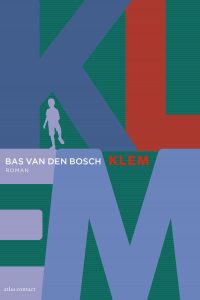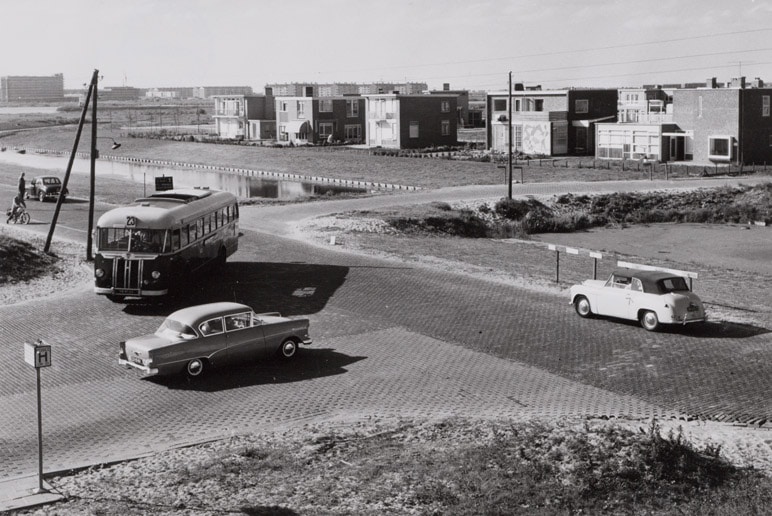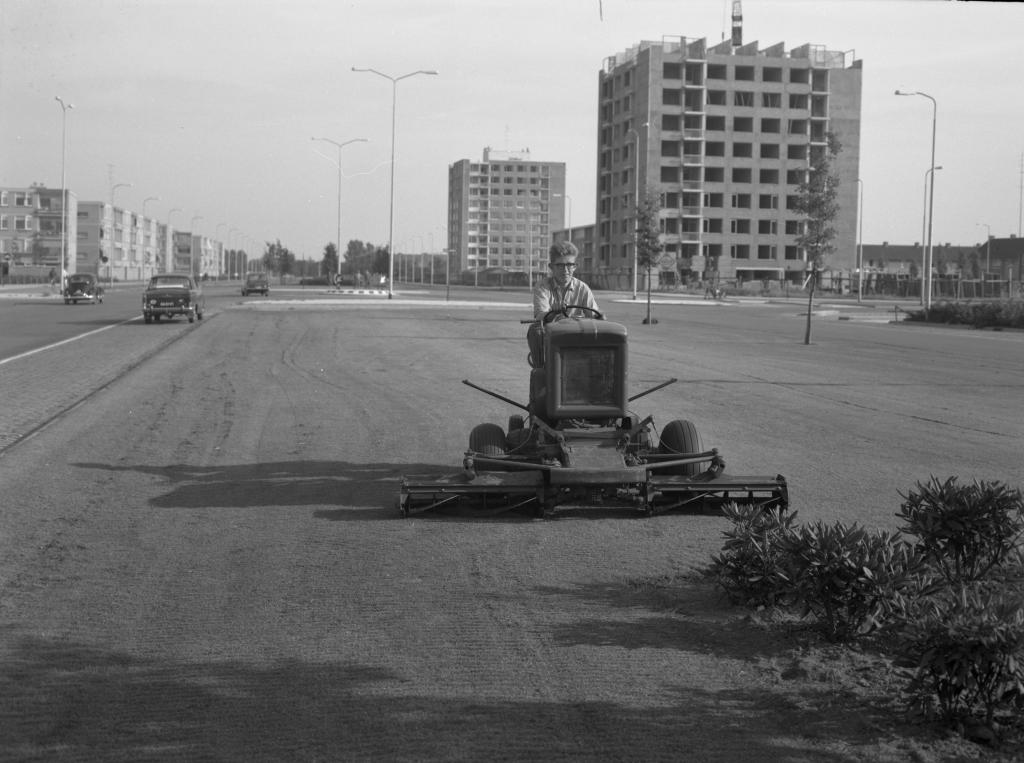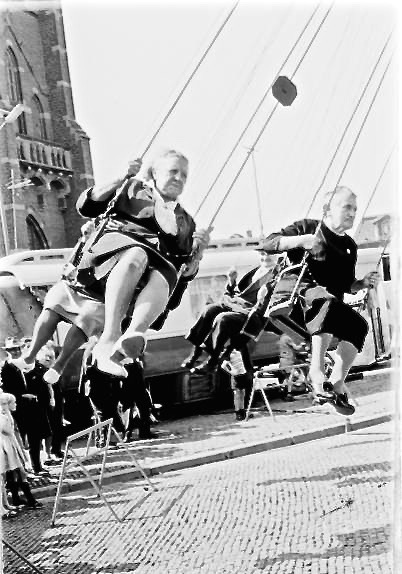Klem is het ontroerende verhaal over de elfjarige Paul, wiens moeder sterft vlak nadat hij weigert even bij haar te komen liggen en de kamer uit rent. Daardoor denkt hij dat hij schuldig is aan haar dood. Interview met schrijver Bas van den Bosch over zijn tweede roman. We verloten drie exemplaren!
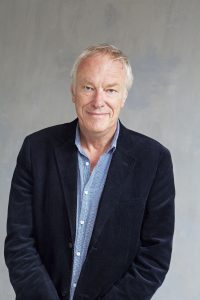
Klem
De beknopte roman Klem heeft overeenkomsten met Septemberlicht, het boek waarmee Bas van den Bosch (1953) in 2009 debuteerde en dat werd genomineerd voor de Anton Wachterprijs. Waar in Septemberlicht de hoofdpersoon zijn vader al op jonge leeftijd had verloren, verliest deze in Klem zijn moeder veel te vroeg. Het is april 1962: de samenleving is nog tamelijk verzuild, Paul zit op een school met alleen maar jongens in de klas en zijn oom Gerard, de broer van zijn vader, komt als missionaris terug uit Afrika. Zowel de maatschappij als Pauls leven staan op het punt ingrijpend te veranderen.
Paul en zijn vader Jaap moeten na de dood van moeder Ria samen verder. Beiden zijn geen praters, en terwijl vader zo met zijn eigen gevoelens worstelt en niet weet hoe hij met zijn zoon moet omgaan, wordt Paul gekweld door de gedachte dat hij schuld heeft aan de dood van zijn moeder. Hij durft zijn geheim met niemand te delen, zelfs niet met de brugwachter met wie hij bevriend is, en kropt al zijn gevoelens op – letterlijk. De darmverstopping wordt zo ernstig dat hij uiteindelijk zelfs in het ziekenhuis belandt. Bij toeval ontdekt Paul dat de zaken heel anders blijken te liggen dan hij denkt (maar we zullen de afloop niet verklappen).
Paul en zijn vader Jaap moeten zien te leren leven met verlies van Ria, en het feit dat hún leven doorgaat. In hoeverre worden we bepaald door ons verleden en zijn we in staat te leven met dit verleden?
‘‘Je bent wat je hebt meegemaakt,’ hoor je wel eens zeggen en dat zal wel zo zijn. Maar je bent óók hoe je kunt omgaan met wat je hebt meegemaakt. Dat doet elk mens natuurlijk op zijn eigen manier. Pauls vader vertelt op een gegeven moment over Raphael Mozes, een Joodse collega die in de oorlog alles kwijtraakte. De vader houdt zijn zoon voor: “Ik wil maar zeggen, Paul, het leven gaat door, ons leven gaat door. Raphael was in ’45 letterlijk alles kwijt, maar hij ging toch gewoon verder met zijn leven en hij was nog vrolijk ook. Als hij vrolijk kon zijn, hoeven wij al helemaal niet bij de pakken neer te zitten.”’’
De kracht van de liefde speelt een belangrijke rol in het verhaal. Kan liefde alle wonden helen?
‘‘Ergens in het boek wordt Paul door zijn vader gewezen op de tekst: “Amor vincit omnia”, liefde overwint alles. De jongen interpreteert dat op zijn eigen manier; hij is bang dat zijn vader een paar maanden na de dood van zijn moeder alweer een nieuw liefje heeft. Maar dat maakt de woorden niet minder waar: hoe groot de kracht van de liefde is en hoe liefde en dood zich tot elkaar verhouden, blijkt aan het eind, als duidelijk wordt dat de vader aan het sterfbed van zijn vrouw “boven zichzelf is uitgestegen”, zoals zijn broer het formuleert.’’
Paul kan zijn gevoelens zo slecht uiten dat hij er letterlijk ziek van wordt. Ook zijn vader kan zich slecht uiten. Was dat typisch voor die tijd, denkt u?
‘‘Ook nu nog wordt vaak gezegd dat mannen hun gevoelens slecht uiten, maar ik durf de stelling wel aan dat dit in de jaren zestig nog veel beroerder was. Erg veel praten over wat hem dwarszat deed de gemiddelde man geloof ik niet, al was ik zelf toen nog een kind en heb ik dat vooral van horen zeggen. Maar nu ik erover nadenk, kan ik me niet herinneren dat ik in de jaren zestig ooit een vader achter een kinderwagen heb zien lopen; de rolpatronen lagen behoorlijk vast. Dat het dus vrouwen waren die emoties bij Paul losmaken, past denk ik wel in de tijd.’’
Welke rol speelt de brugwachter voor Paul? Wat is zijn functie voor het verhaal?
‘‘De brugwachter is voor Paul een geschenk uit de hemel: eindelijk iemand bij wie hij niet op zijn hoede hoeft te zijn. In die zin fungeert de brugwachter in dit verhaal als een soort lichte toets in Pauls benauwde wereld. Het brugwachtershuisje is een veilige plek, waar hij even aan iets anders kan denken.’’
Het boek ademt de sfeer van de jaren zestig, een tijd waarin de maatschappij flink aan het veranderen was. Waarom koos u juist deze tijd als achtergrond?
‘‘De jaren zestig waren nog behoorlijk burgerlijk, maar de verandering hing in de lucht. In die tijd past Paul: veel in de grote wereld rondom hem verandert en voor die veranderingen staat hij, nieuwsgierig als hij is, volledig open. Maar, zoals Pauls oom Gerard, wijzend op een gloednieuwe televisie, ergens zegt: “De grote wereld is maar een klein kastje, als je de knop omdraait, is de voorstelling voorbij en ben je meteen weer thuis. En thuis gebeurt het.” In dit boek is de grote wereld, die zich langzaam opent, het decor van Pauls kleine wereld, die zich eerst sluit maar aan het eind ook weer opent. Iets anders is dat de jaren zestig me ook goed van pas kwamen voor de plot van het verhaal: anno nu zou de moeder waarschijnlijk op een andere manier zijn gestorven.’’
In die tijd was u even oud als uw personage Paul. Wat herinnert u zich zelf nog van die periode?
‘‘Ik herinner me nog goed dat we thuis een geiser kregen en dat er dus ineens warm water uit de kraan stroomde. Ook de eerste auto van mijn vader – ik denk in ’67 – was een grote gebeurtenis: het hele gezin rende de straat op om de Fiat te verwelkomen. Als veel andere ‘tijdgenoten’ herinner ik me ook de dood van John Kennedy nog goed. Zwijgend zat ik naast mijn vader bij de radio. Overigens hebben de jaren zestig op mij niet zo’n grote invloed gehad. Ik heb het gevoel dat er veel meer gebeurde in de jaren zeventig.’’
Klem is uw tweede roman. Waarin verschilde het schrijfproces ten opzichte van uw eerste boek Septemberlicht?
‘‘Er zit bijna zes jaar tussen de eerste en de tweede roman, maar er waren ook periodes dat ik Klem opzij legde, om het manuscript na een paar maanden (of soms nog langer) weer op te pakken en verder te voltooien. In de tussentijd werkte ik dan aan een nieuwe roman of aan korte verhalen. Hoewel Septemberlicht een dikker boek is, heb ik over Klem, een relatief “klein” verhaal, wel veel langer gedaan. Dat had ongetwijfeld te maken met de keuze van het kindperspectief, waarmee ik het mezelf, vocabulair en intellectueel gezien, niet makkelijk maakte. Veel scènes zijn vier of vijf keer herschreven, maar eigenlijk vond ik dat ook wel weer mooi om te doen. Uiteindelijk heb ik aan de totstandkoming van Klem misschien wel meer plezier beleefd dan aan die van Septemberlicht, waarschijnlijk dus door dat ambachtelijke schaven en schuren, daar hou ik kennelijk van.’’
Toen u debuteerde was u 56 jaar. Welke rol speelt het schrijven in uw leven?
‘‘Ik ben inderdaad een late debutant, maar die moeten er nu eenmaal ook wezen. Sinds mijn debuut ben ik het schrijven van verhalen als een baan gaan beschouwen en zit ik gemiddeld zo’n vijf uur per dag achter mijn bureau. En ik moet zeggen: een betere baan heb ik tot nu toe niet gehad.’’
Bas van den Bosch – Klem (192 p.), Atlas Contact, €21,99
WIN DIT BOEK! We geven drie exemplaren weg. Kans maken? Stuur een mailtje naar info@aquattromani.nl en wie weet behoor jij tot de gelukkigen!
** FRAGMENT **
9 april
‘Niet doen, Paul, alsjeblieft niet doen.’ Mijn moeder kruist haar armen voor haar borst om me af te weren, maar ik haal uit en ren weg, bots bij de deur tegen mijn vader, sprint de gang in, sla een bocht om en beland in de lege conversatiezaal. Nergens een gordijn. Nergens een diepe kast. Nergens ook maar een wastafel om onder weg te kruipen. Hijgend zak ik in een stoel – hij vindt me toch wel – en dan begint het wachten. Veertig, zestig, honderd; ik tel tot ik in de war raak en opnieuw moet beginnen, maar steeds raak ik de tel kwijt en begin ik opnieuw. Dan ineens staat papa op de drempel, colbert gekreukt, haar door de war. Heel rustig loopt hij op me af en pakt mijn handen, knijpt in mijn pols: ‘Niet schrikken, knul…’ Ik schud mijn hoofd want ik wil niet horen wat er komt, maar hij haalt diep adem en dan komt het toch: ‘Je moeder is gestorven. Je moeder is gestorven en ze is in de hemel.’
Aan de rand van het plafond zit een lekkageplek in de vorm van een dolk die kronkelend eindigt in een scherpe punt. Ernaast loopt een bruine barst naar een hanglamp in het midden. Juffrouw Martens beweert dat de hemel de mooiste plek is van het heelal, maar volgens mijn vader kan ze nogal overdrijven.
Hij trekt me uit de stoel, voelt dat ik tegenstribbel en buigt zich voorover. ‘Je hoeft niet bang te zijn, we gaan niet naar haar toe.
Twee verpleegsters komen ons in de gang tegemoet en onderbreken hun gesprek. Mij kijken ze niet aan, hem groeten ze met een knikje. Hun ogen priemen in mijn rug. Tot bij de lift zijn onze voetstappen het enige geluid in de gang en zelfs bij de kamers met zes patiënten is het stil. Een broeder laat ons voorgaan en slaat zijn ogen neer. Het is gek: nog nooit heeft mijn vader me ‘knul’ genoemd.
Pas buiten, bij het oversteken, geeft hij me een hand en in de tram naar huis friemelt hij aan zijn jas. Hij staart uit het raam. Twee keer kijkt hij naar me omlaag en de tweede keer blijft hij kijken tot ik mijn gezicht naar het gangpad draai. Zestien benen. Op het gangpad staan zestien benen van acht mensen, waarvan er vier eerder uitstappen dan wij.
Thuis ren ik onmiddellijk naar boven, naar mijn kamer, maar als ik hem in de gang hoor telefoneren, sluip ik naar de trap: tree acht van boven, twaalf van onderen, hij telde ze vroeger als hij me in bed stopte. Na het gesprek drukt hij zijn voorhoofd tegen de muur en blijft zo een ogenblik staan; zijn kruin een vogelnestje, mama’s woord.
Hij draait opnieuw: ‘Met Jaap. Schrik niet, het is voorbij. Ria is gestorven.’ Na het vierde telefoongesprek verdwijnt hij in de keuken en drinkt uit de kraan. Daarna belt hij nog drie keer en elk gesprek verloopt hetzelfde: eerst draait hij een nummer, dan haalt hij diep adem en als er wordt opgenomen, zegt hij steeds: ‘Met Jaap. Schrik niet, het is voorbij. Ria is gestorven.’
Niks over wat ik heb gedaan, niks over de hemel.
